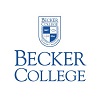
What are the top Game Design BS programs?
| Ranking | School | State |
|---|---|---|
| 1 | University of Southern California | California |
| 2 | Carnegie Mellon University | Pennsylvania |
| 3 | University of Utah | Utah |
| 4 | Rochester Institute of Technology | New York |
| 5 | DigiPen Institute of Technology | Washington |
| 6 | University of California, Santa Cruz | California |
| 7 | Massachusetts Institute of Technology | Massachusetts |
| 8 | Southern Methodist University | Texas |
| 9 | University of California, Irvine | California |
| 10 | DePaul University | Illinois |
| 11 | Rensselaer Polytechnic Institute | New York |
| 12 | Georgia Institute of Technology | Georgia |
| 13 | University of Washington | Washington |
| 14 | Drexel University | Pennsylvania |
| 15 | Northeastern University | Massachusetts |
| 16 | Full Sail University | Florida |
| 17 | University of Texas at Austin | Texas |
| 18 | Academy of Art University | California |
| 19 | Texas A&M University | Texas |
| 20 | North Carolina State University at Raleigh | North Carolina |
| 21 | University of Wisconsin, Whitewater | Wisconsin |
| 22 | University of Denver | Colorado |
| 23 | Becker College | Massachusetts |
| 24 | University of North Carolina at Charlotte | North Carolina |
| 25 | Clemson University | South Carolina |
Below are the Top 25 game design schools and colleges offering Bachelor of Science (BS) degree programs for 2019. For an explanation of ranking criteria, click here.
 1. University of Southern California, Los Angeles, California
1. University of Southern California, Los Angeles, California
University of Southern California (USC) houses Viterbi School of Engineering, home to the Department of Computer Science. Here, students can earn a BS in Computer Science (Games). Per the school, the 128 credit hour program is designed to provide students with “a solid grounding in computer science and a cross-disciplinary background in game development.”
Topics covered in the cross-disciplinary game development portion of the degree program include game production, visual design for games and interactives, computer animation, video game programming, game hardware architectures, game engine programming, serious game development, introductory and intermediate game design. The program also includes two semester-long final game projects.
Students in the program have access to USC’s prestigious GamePipe Laboratory. Sponsored by Intel, Sony, and other technology companies, the Lab produces a "Demo Day," which allows students to showcase their work. The semiannual event attracts game industry reps, reporters, faculty, students, and hundreds of spectators from across the country.
Graduates of the BS program “will be capable of engineering next-generation games and simulations and their technologies in the entertainment and serious game fields.” In addition, graduates will be able to “further their education in graduate programs in game development and computer science.”
 2. Carnegie Mellon University, Pittsburgh, Pennsylvania
2. Carnegie Mellon University, Pittsburgh, Pennsylvania
Carnegie Mellon University offers a Bachelor of Computer Science and Arts (BCSA) with a Concentration in Game Design in collaboration with the School of Computer Science-Computer Science Department, the College of Fine Arts-Integrative Design, and Arts and Technology (IDeATe). Per the school, the degree "provides an ideal technical, critical and conceptual foundation for students interested in pursuing fields that comprehensively meld technology and the arts, such as game design, computer animation, computer music, recording technologies, interactive stagecraft, robotic art and other emerging media."
Students must choose an art concentration from the School of Architecture, Art, Drama or Music. Students choose their computer science concentration established by the School of Computer Science. Game course highlights include Game Engine Programming, Design Educational Games, Computer Game Programming, Computer Graphics, Experimental Animation, IDeATe: Art of Robotic Special Effects, Technical Animation, and Animation Art and Technology.
Another unique component of the program is IDeATe Collaborative Studios. Studios include Game Engine Programming offered by the Robotics Institute, Research Issues in Game Development offered by the Entertainment Technology Center (ETC) at CMU, and Programming for Game Designers—also offered by the ETC.
Students must complete 380 unit to graduate from the program—this includes 40 free elective units to “broaden and deepen” their chosen concentration.
 3. University of Utah, Salt Lake City, Utah
3. University of Utah, Salt Lake City, Utah
The University of Utah (The U) has an Entertainment Arts and Engineering (EAE) Interdisciplinary Teaching Program that offers a BS in Games (BSG). Per the school, the program is designed “specifically for students who aspire to hold careers within the professional games industry or a related field, such as simulation, edutainment, or visualization.”
The new program “provides a technical grounding in mathematics and computational skills, core knowledge in the design and production of digital playable experiences, and specialization options that prepare students for technical supervision, tools development and overall game design.” Course highlights include Alternative Game Development, Survey of Games, Digital Content Creation, and Programming. Students will complete a senior project and internship opportunities are available.
The University’s School of Computing also offers a BS in Computer Science with an emphasis in Entertainment Arts and Engineering (EAE) and a five-year BS/MS. Courses cover video game design and development, 3D animation, and computer-generated special effects, in addition to the full Computer Science curriculum. BS EAE students will also complete a senior project worth six credit hours.
 4. Rochester Institute of Technology, Rochester, New York
4. Rochester Institute of Technology, Rochester, New York
Rochester Institute of Technology (RIT) is home to the B. Thomas Golisano College of Computing and Information Sciences (GCCIS), which houses the School of Interactive Games & Media (IGM). Here students can earn a BS in Game Design and Development or a BS in New Media Interactive Development.
The GCCIS IGM Game Design and Development program emphasizes game programming and cooperative education (co-op). The co-op is a required, full-time paid work experience that provides students with an opportunity to learn on the job in real-world industry settings. Students must complete two semesters, full-time, which amounts to a minimum 35-hour work week over the course of an academic semester. Past co-op companies include Microsoft, Sony Interactive Entertainment, Sapient-Razorfish, Google, EA, Epic Games, Cartoon Network, Seagate, Hi-Rez Studios, and many others.
In addition to the co-op experience, students in the BS in New Media Interactive Development program will explore casual games, physical computing, production, web, mobile, and more. All GCCIS IGM students have the opportunity to take any minor or enroll in a double major.
 5. DigiPen Institute of Technology, Redmond, Washington
5. DigiPen Institute of Technology, Redmond, Washington
DigiPen Institute of Technology houses the Department of Game Software Design and Production, which offers a BS in Computer Science and Game Design, a BS in Computer Science in Real-Time Interactive Simulation (BS in RTIS), and a five-year BS in RTIS/MS in Computer Science. The BS in Computer Science and Game Design is a cross-disciplinary program that highlights a heavy course load of both software engineering and design projects, the opportunity to design “fun and interesting game concepts, systems, and mechanics,” and the study of math, physics and computer science principles.
Multidisciplinary team projects make up a core component of the program, allowing students to collaborate with other student designers to create original games. Graduates of the program are prepared to seek careers such as Game Designer, Gameplay Programmer, and Systems Designer.
The BS in RTIS offers “extensive training in mathematics and physics,” says DigiPen, students in the program also “work both individually and collaboratively to learn the fundamentals of Game Design, Production, and Programming. Additionally, they write game design documents and technical design documents, learn how to schedule tools and techniques, and participate in the full production of several games.”
The BS/MS allows students to tailor elective coursework, study design and development, and write and defend a thesis
DigiPen student games have won 57 Independent Games Festival awards (more than any other school) and to date, more than 550 companies around the world have hired DigiPen graduates. DigiPen alumni have been credited on more than 1,000 commercial game titles.
 6. University of California, Santa Cruz, Santa Cruz, California
6. University of California, Santa Cruz, Santa Cruz, California
The University of California - Santa Cruz (UCSC) houses the Jack Baskin School of Engineering (BSOE), which started the first undergraduate game major in the University of California System in 2006. Offered through BSOE’s Department of Computer Science (CS) and Computational Media (CMPM), undergraduate options include a BS in Computer Science: Computer Game Design.
Per the school, this four-year disciplinary degree program focuses on “the construction and design of interactive computer games.” Students in the program will also receive a “rigorous education in computer science, in concert with a broad introduction to those aspects of art, music, narrative, digital media, and computer engineering most relevant to games.”
Freshmen will be introduced to game design, in their sophomore year, students will engage in a game programming experience, and in their junior and senior years, students will take two upper-division digital media electives, and an intensive senior-year game design studio where they will work in teams to develop a substantial video game.
All students gave access to The Center for Games and Playable Media at UC Santa Cruz (CGPM), which houses UCSC's five games-related research labs including the Expressive Intelligence Studio — one of the largest technical game research groups in the world. The focus of the Center is on playable projects that prove faculty and student research ideas.
CGPM also “boasts one of the largest interdisciplinary faculties, drawn from Computer Science, Psychology, Economics, Computer Engineering, Literature, Theatre, and Art.” CGPM partners include Google, eBay, Sony, Papaya, Microsoft Studios, EA, NSE, DARPA, the MacArthur Foundation, and the John S. and James L. Knight Foundation.
 7. Massachusetts Institute of Technology (MIT), Cambridge, Massachusetts
7. Massachusetts Institute of Technology (MIT), Cambridge, Massachusetts
Massachusetts Institute of Technology (MIT) is home to the MIT Game Lab, the MIT Education Arcade, and the Singapore-MIT GAMBIT Game Lab. Together, the labs provide the opportunity to study, design, and develop games as a supplement to several degree programs. This means students who are interested in games can create their own program of study.
Undergraduate degree options for aspiring game designers include a BS in Comparative Media Studies (CMS) with a Games and Interactive Media “Cluster,” a BS in Computer Science and Engineering, a BS in Brain & Cognitive Science and a BS in Business. Students in the BS in CMS program can expect to take course such as Advanced Games Studio, Design and Development of Games for Learning, Creating Video Games, Game Design, Media Industries and Systems: The Art, Science and Business of Games, and Games for Social Change, and Writing for Videogames.
The BS in Brain & Cognitive Science is designed for those interested in psychological games and behavioral change. The BS in Business is for those interested in studying business practices required for creating their own game company. The BS in Brain & Cognitive Science is offered through the MIT Department of Brain and Cognitive Sciences and the BS in Business is offered through MIT Sloan School of Management.
 8. Southern Methodist University, Dallas, Texas
8. Southern Methodist University, Dallas, Texas
Southern Methodist University (SMU) is home to Lyle School of Engineering, which houses the Computer Science and Engineering Department. Here, aspiring game designers can earn a BS in Computer Science with a Game Development Track. The program requires 32 credit hours in math and science, 47 in computer science, six credits in engineering leadership, six advanced elective credits, and 9-18 elective/track credits for a total of 100-103 credit hours.
The Game Development Track consists of 18 credit hours and a Gaming Design Project. Students in this program must be admitted to the SMU Guildhall Certificate Program. Per the school, “SMU Guildhall works collaboratively across disciplines and industries to train the next generation of game developers.” Established in 2003, the Guildhall was the first in the world to offer a master's degree in interactive technology and it is the only program with specializations in all four cornerstones of game development (Art, Design, Production, and Programming).
As part of the Guildhall, in addition to what they will learn in the BS in Computer Science program, students will study character modeling virtual sculpting, anatomy, rigging and weighting, animation, environmental modeling, modularity, game engine pipelines, lighting and post-processing, concept art, complex textures and materials, technical art support, user interfaces, mobile game art, virtual and augmented reality, and team game creation.
Graduates of the Game Programs at SMU have many career options. Just a few include Game Designer, Computer Programmer, Character Artist, Game Developer, and Game Artist.
 9. University of California, Irvine, Irvine, California
9. University of California, Irvine, Irvine, California
The University of California - Irvine (UC Irvine) is home to the Donald Bren School of Information & Computer Sciences, which offers a BS in Computer Game Science (CGS). Per the school, the program “is designed around a set of core courses that introduce the fundamentals of computer science (programming, data structures, graphics and artificial intelligence), math (statistics, linear algebra and logic), and games (games and society, game design, game engines and multiplayer games).”
Nearly thirty electives offer students the opportunity to specialize, “focusing anywhere from typical game topics such as modeling, world building and mobile games to more peripheral topics such as software design and social impacts.”
Throughout the major, CGS students will “gain hands-on experience in creating a variety of digital games, for entertainment purposes, but also for education, training and engendering social change.” Working in teams, students “will employ a variety of different programming languages, game platforms and hardware.” Overall, the program “strongly emphasizes the technical aspects of creating games, as well as working in teams to design and implement them.”
Graduates of the program continue on to graduate school or they often “find employment in the industry, whether at a major publisher, smaller studio or as self-employed freelancers. Many squarely focus on entertainment, others succeed in bringing their skills to the design and development of serious games in a variety of domains, including healthcare and education.”
 10. DePaul University, Chicago, Illinois
10. DePaul University, Chicago, Illinois
DePaul University (est. 1898) was one of the first universities to offer a game development course for smartphones. The school also offers game design programs at all levels through the College of Computing and Digital Media (CDM). Undergraduate options include a BS Game Design and Game Programming and a BS in Computer Science with a Game Systems Concentration.
Students in all Game Design programs have access to the Deep Games Laboratory and all CDM labs, including several that intersect with the program specifically, including game development and research, gameplay, virtual reality, and playtest and usability labs. The Deep Games Laboratory is a cross-disciplinary design, research, development, and assessment game lab housed in CDM that focuses on games exploring the human experience.
Recent DePaul Game Program graduates have gone on to work at Disney Interactive Studios, NeatherRealm Studios, Owlchemy Labs, Firaxis, Wargaming, Phosphor Games, Carbine Studios, Scientific Games, and many others. Several grads have gone on to form their own gaming companies, including Young Horses, whose indie hit Octodad was developed at DePaul.
 11. Rensselaer Polytechnic Institute, Troy, New York
11. Rensselaer Polytechnic Institute, Troy, New York
Rensselaer Polytechnic Institute (RPI) is home to the School of Humanities, Arts and Social Sciences (HASS), which offers a BS in Games and Simulation Arts and Sciences (BS GSAS) and a BS in Electronic Media, Arts, & Communication (EMAC). BS GSAS students may choose a concentration or dual BS degree from the following options: Arts (Electronic Arts), Human Computer Interaction (HCI), Computer Science, Management/Entrepreneurship, Cognitive Science, or Writing for Games.
Established in 1996, the BS in EMAC program is an interdisciplinary program that includes courses in communication as well as in digital art and animation, video, electronic music, and graphic design, supported by RPI’s strong technological infrastructure. The EMAC curriculum offers concentrations in Digital Storytelling (Animation, Video, Game Design), Graphic Design, Interaction Design, Marketing Communication and Design, Sound Design and Popular Culture.
Students may enhance their education by adding a minor, dual major, study abroad, internship, or even a co-terminal graduate program.
 12. Georgia Institute of Technology, Atlanta, Georgia
12. Georgia Institute of Technology, Atlanta, Georgia
Georgia Institute of Technology (GeorgiaTech) offers a BS in Computational Media (BSCM) with a Games or Interaction Focus, a BS/MS in Computational Media/Digital Media, and an Accelerated 5-Year Bachelor's/Master's. Programs are offered through GeorgiaTech’s College of Computing. The programs, known as Games@GT, are part of an institute-wide initiative designed to advance the game community through interdisciplinary research, funding opportunities, tech transfer and expansion of industry collaborations.
The BS in Computational Media (BSCM) with a Game Studies Focus is also supported by the School of Literature Communication and Culture within the Ivan Allen College of Liberal Arts. All Games@GT students have access to resources offered by the GVU Center at Georgia Tech and the Institute for People and Technology, as well as international campuses in China (the world's biggest games industry in terms of users and revenue) and France.
Graduates of the Game Programs at GeorgiaTech are prepared to seek careers in Interactive Game Design and Simulation, Special Effects Creation, Animation, 3-D Modeling, Robotics, Virtual and Augmented Reality and Web Design.
 13. University of Washington, Seattle, Washington
13. University of Washington, Seattle, Washington
University of Washington (UW) is home to the Paul G. Allen School Computer Science & Engineering, which offers a BS in Computer Science, a BS in Computer Engineering, and a Combined BS/MS. All programs offer the opportunity to focus in Graphics, Vision, Games, and Animation.
In the BS degree programs, students can work with faculty and graduate students on research; collaborate with industry partners; tackle complex design and implementation projects in capstone courses; and tailor their degree to meet their interests and goals. Sample courses include Computer Animation, Computer Graphics, Advanced Digital Design, Digital Sound, Data Visualization, and Artificial Intelligence. In addition, students can earn a Certificate in Game Design.
Students have access to three main labs at UW CSE. All are engaged in research spanning the areas of animation, computer game science, graphics, vision, and visualization. Labs include the Graphics and Imaging Lab (GRAIL), the Center for Game Science, and the Animation Research Labs. Per UW, the GRAIL group is known for “groundbreaking” research in computational photography, games for science and education, 3-D reconstruction, Internet photo collections, object recognition, human shape and motion analysis, information visualization, and animation, while researchers at the Center for Game Science use gaming to solve grand challenges, crowdsource human problem-solving to aid scientific discovery, and improve student interest and achievement in mathematics.
The Animation Research Labs is a multi-disciplinary effort that brings together faculty and students from UW CSE, the Department of Architecture, and the Schools of Art, DXARTS, Drama, and Music. The ARL is focused on advancing the state-of-the-art in animation through teaching, research, and computer-animated production in collaboration with experts from Disney Animation Studios, Bungie, Industrial Light & Magic, Microsoft Game Studios, Pixar, and many others.
14.  Drexel University, Philadelphia, Pennsylvania
Drexel University, Philadelphia, Pennsylvania
Drexel University is home to the College of Computing & Informatics, which offers a BS in Computer Science (BSCS) with a Concentration in Game Programming and Development (GMPD). Students may also add a Minor in Interactive Digital Media.
Per the school, the Game Programming and Development Concentration “provides conceptual understanding of game design and practical experience in the design and the development of games.” Courses cover fundamentals of game design and development, large-scale game development, and special topics in educational and experimental game design.
Students in the BSCS program will benefit from Drexel’s Cooperative Education Program. Founded in 1919, the program was one of the first of its kind, and it “continues to be among the largest and most renowned.” Drexel Co-op, which allows students to test drive careers, network and gain experience before graduation, offers access to more than 1,700 employers in 35 states and 45 international locations. Students may also opt to conduct independent search.
Students in the BSCS program can participate in a four-year, one co-op program, a five-year three co-op program, or a five-year two co-op program (with a combined BS/MS degree).
Drexel’s Westphal College of Media Arts & Design also offers a BS in Game Art and Production and Game Design & Production. Students in all programs have access to Drexel Game Design (DGD) and the RePlay Lab. DGD and RePlay are collaborative efforts between the Digital Media program (in the Westphal College of Media Arts & Design) and the Computer Science department (in the College of Computing and Informatics).
 15. Northeastern University, Boston, Massachusetts
15. Northeastern University, Boston, Massachusetts
Northeastern University houses the College of Computer and Information Science (CCIS) - Khoury College of Computer Sciences. Here students can earn a BS in Computer Science and Game Development and Minors in Game Art, Game Design, Experience Design and Interaction Design. Per the school, the combined 133 credit hour BS in CCIS focuses on “building and developing games and playable media experiences” along with “courses in computer science and specialized game technology and design.”
Interdisciplinary courses enable students to develop their creative and entrepreneurial abilities, as well as create a strong portfolio of game pieces.” Course highlights include Building Game Engines, Games and Society, The Business of Games, Rapid Idea Prototyping for Games, Game Concept Development and Production, Software Development, Computer Graphics, and Object-Oriented Design.
The BS in Computer Science and Game Design Program requires a Game Design Capstone that offers students the opportunity to work in a large group to complete game from preproduction through implementation and testing. Internship and co-op opportunities are also available.
 16. Full Sail University, Winter Park, Florida
16. Full Sail University, Winter Park, Florida
Full Sail University has BS degrees in Game Art, Game Design, Game Development, Simulation & Visualization, and Mobile Development. In the Game Art BS, students will create 3D content and “take traditional art and animation principles and apply them to models that look, move and articulate artistically,” says the school. Course highlights for the program include Game Animation, Motion Capture, and Level Assembly & Lighting.
The Game Design BS is designed to enhance the students “ability to work in a game studio environment.” The program “is comprised of high-level game design and production courses that will take” students “deep into the game development pipeline.” The program covers key industry concepts influencing both systems and level designs that will prepare students to prototype and evaluate their game projects. Course highlights include Game Mechanics, Game Balancing, and Prototyping.
The BS in Game Development guides students through the entire game development cycle, from pre-production to finished product. Course highlights include Artificial Intelligence, Engine Development, and Data Structure and Algorithms. Graduates will have the ability to create program code for 3D graphic display, multiplayer gaming, artificially intelligent opponents, and real-time virtual environments.
The BS in Simulation & Visualization equips students with the programming and critical-thinking skills needed to study and design virtual systems. Course highlights include Virtual and Augmented Reality, Artificial Intelligence, and Computer Graphics. Through hands-on experience, students will develop their “tech savvy in order to keep pace with an ever-evolving industry.”
The Game Art and Game Design BS degrees are available on campus and online.
 17. University of Texas at Austin, Austin, Texas
17. University of Texas at Austin, Austin, Texas
The University of Texas - Austin (UT Austin) offers a BS in Computer Science with a Concentration in Game Development (BS CS), along with a unique program for all aspiring game designers. The collaboration between the College of Fine Arts (CoFA), the Computer Science Department (CS), the Radio-Television-Film Department (RTF), and the Center for Arts and Entertainment Technologies (CAET) is formerly known as the Game and Mobile Media Applications (GAMMA) program.
Today, the program (the University of Texas at Austin Game Development and Design Program) allows participating students to “individually build their pertinent skills within their respective degree programs, then come together to collaboratively develop 2D and 3D games for AR/VR, mobile, online, and personal computer platforms in the program’s culminating experience: The Capstone Course,” says the school.
Game students also have the opportunity to work “alongside organizations such as UT’s EGaDS! and IGDA Austin,” and with local game and mobile studios, and industry professionals.
Students may earn a certificate in CS Game Development, CS Mobile Computing, CoFA Digital Art Production, CoFA Digital Audio Composition & Production, CoFA Digital World Designer or RTF Visual Effects & Animation. Certificates are awarded in addition to the undergraduate degree in any given program outside of the Game Development and Design Program.
A Five-Year BS/MS Integrated Program in Computer Science is also available. The program culminates in a Capstone Course, which includes 2D Game Development and the 3D Game Development Studio. All CS programs offer internships and the opportunity to obtain permanent employment in game development and interactive entertainment.
Graduates of all Game Programs at UT Austin are “ready to design, develop, and provide leadership for the exploding growth in AR/VR, game, mobile app, and creative media agencies and studios in Texas and around the world.”
 18. Academy of Art University, San Francisco, California
18. Academy of Art University, San Francisco, California
Academy of Art University offers a BS in Game Programming. Per the school, the multidisciplinary teaches “specialized aspects of design such as monetization, unique control types, rapid development via iteration, and production methods working in teams.” Course highlights include Programming for Games, Data Structures & Algorithms, AAA Game Engine Architecture, Vector, Matrices, & Transformations, Network Programming, Scripting for Mobile Games, Artificial Intelligence, Systems Design, and Indie Game Programming.
The BS program includes an internship, collaborative projects, and Games Portfolio Preparation. Students will graduate with a solid grasp of the fundamental game art principles, including knowledge of game engine technology, and pre-production and production environments.
The Game Development programs at Academy of Art prepare students for positions such as Game Designer, 3D Modeler, Concept Artist, UI/UX Designer, and many others.
 19. Texas A&M University, College Station, Texas
19. Texas A&M University, College Station, Texas
Texas A&M University offers a BS in Visualization. Students in the program may add a Minor in Game Design and Development. Per the school, the undergraduate Visualization curriculum “integrates elements of fine arts, three-dimensional design, scientific inquiry and digital technology to provide a broad, wide-ranging educational experience. The core of the program is the studio experience, which explores the relationship between theory and practice through a variety of exercises and projects using traditional and electronic media.”
Other program highlights include access to the Departments Learning Interactive Visualization Experience Lab and a required semester away during the Junior year, followed by a capstone proposal and studio during the Senior year. Established in 2014, the Lab “provides space for graduate and undergraduate students to create game prototypes while learning about game theory, the art and science of the visual image and game history. In the lab, through research and rigorous scientific process, students collaborate with specialists from visualization, educational psychology, computer science and engineering to create innovative, interactive software.”
Graduates of the program are prepared for employment in such fields as user interface and web design, the entertainment industry (game design and development, animation and visual effects), as well as fields such as modeling and simulation, data analytics and other fields where visualization contributes to understanding. Graduates may also “enter graduate programs that emphasize digital media in either computer science or art/design.”
Visualization program alumni can be found working as creative talent for Hollywood’s leading animation and special effects studios including Pixar, Blue Sky, Walt Disney Animation Studios, Industrial Light and Magic, DreamWorks Animation, Rhythm & Hues Studios and Reel FX.
 20. North Carolina State University at Raleigh, Raleigh, North Carolina
20. North Carolina State University at Raleigh, Raleigh, North Carolina
North Carolina State University (NC State) offers a BS in Computer Science (CSC) with a Game Development Concentration. Per the school, the BS program “allows the student to develop an understanding of the scientific and technological principles associated with the design and development of computer and console games for both entertainment and serious applications.”
Students will take all of the courses required for the CSC as well as Game Design and Development, Artificial Intelligence (AI), Building Game AI, Computer Models of Interactive Narrative, Human-Computer Interaction, and Computer Graphics. Students are also required to take Advanced Graphics Projects and Advanced Game Development Projects. Internships and study abroad opportunities are also available, and electives run the gamut from Game Studies and Fiction Writing to Fantasy, Film and Science Fiction.
Students will also benefit from The Digital Games Research center (DGRc). Created in May of 2007, the center was designed to “undertake an ambitious agenda of research, education and outreach activities in the area of games and games technologies.”
“Housed in the Department of Computer Science, the center’s faculty include colleagues from the colleges of Education, Engineering, Design, Management and Humanities and Social Sciences that collaborate on a wide range of research and educational initiatives which focus on new modes of entertainment and interaction in digital worlds.”
 21. University of Wisconsin – Whitewater, Whitewater, Wisconsin
21. University of Wisconsin – Whitewater, Whitewater, Wisconsin
University of Wisconsin-Whitewater (UW-W) houses the College of Arts and Communication, home to the Department of Art and Design. Here, students can earn a BS degree in Gaming Technology or Communication/Gaming. Per the school, Gaming Technology students “will develop the programming skills and software development expertise required for cross-platform real-time interactive graphics and game development. Students focus on building a solid base of programming skills necessary to take on real-world challenges related to developing games, mobile apps, websites and more.”
Course highlights for the program include C++ Sequence, Artificial Intelligence, Game Engine/Modding, and Graphics Programming. An Internship, Special Topics and Independent Study are also part of the program as well as a required Team Project.
Communication/Gaming course highlights include Video Production, Sound and Image, Game Development, Social Media Optimization, and Advanced Audio Techniques. Students in the program will “focus on the role of games in developing culture and communicating messages, intersections and interactions between audio and video, and approaches for the optimization of social media.” Practicum courses provide “real-world opportunities for students to hone their skills in a variety of areas, including web video production, motion graphics, composition/scoring, advanced web development and marketing.”
Two team-based projects courses provide a capstone for the degree programs. In addition, all students may participate in the MAGD Expo—a juried show of interactive entertainment, 3D, 2D, aural, virtual and animated creative work held annually at the University of Wisconsin, Whitewater.
 22. University of Denver, Denver, Colorado
22. University of Denver, Denver, Colorado
University of Denver (DU) is home to the Daniel Felix Ritchie School of Engineering and Computer Science, which offers a BS in Game Development. The program requires a Minor in Mathematics, and a second art-related Minor. A cognate of five approved classes from Art and Emergent Digital Practices is also required.
A heavy focus is placed in on developing computer science and programming skills, while building a strong foundation in the artistic, critical, and design elements of games. Students will have the option to “focus either on the appreciation, understanding and production of art, or on the critical, technical and design elements of digital media.” Students will also have access to study abroad and travel opportunities, as well as internships and cooperative education opportunities.
Graduates of the BS program will be prepared to seek positions in game development and “effectively collaborate with artists and others throughout the development process.”
 23. Becker College, Worcester, Massachusetts
23. Becker College, Worcester, Massachusetts
The Design Division at Becker College houses the Interactive Media Design program. Established in 2006, the program began with just 12 students. Today, the program has 600 students, which led to expanded academic offerings and resources, such as the MFA in Interactive Media and the $7.3 million Colleen C. Barrett Center for Global Innovation and Entrepreneurship. The Center provides student’s access to a Game Studio and Augmented Reality/Virtual Reality Lab.
Besides a variety of game programs and resources, including the BS in Applied Computer Science with a Game Programming Specialization, Becker College houses the Massachusetts Digital Games Institute (MassDiGI). Established in 2011, “MassDiGI is the result of creative collaboration among academia, industry and government, aimed at fostering the growth of the game industry and innovation economy.” It is a statewide center, “designated by the Commonwealth, for entrepreneurship, academic cooperation and economic development across the Massachusetts digital and video games ecosystem.”
Students work on real game properties, government simulation projects, and educational and serious games that the school says “are making a difference in people’s lives.” Students participate in internships and externships, and are exposed to networking opportunities with industry professionals at conferences such as the Game Developers Conference (GDC) and Boston’s PAX East, where they debut the games they created.
Becker students have produced digital technology applications for John Hancock, Meditech, UMass Medical School, Oracle, the Internal Revenue Service, and the U.S. Army, to name a few.
 24. University of North Carolina at Charlotte, Charlotte, North Carolina
24. University of North Carolina at Charlotte, Charlotte, North Carolina
University of North Carolina at Charlotte (UNC Charlotte) is home to the College of Computing and Informatics, which houses the Department of Computer Science. Here, students can earn a BS in Computer Science with a Concentration in AI, Robotics, and Gaming. An undergraduate Certificate in Game Design may also be added to the program.
Course highlights for the BS include AI for Computer Games, Game Design and Development, Advanced 3D Computer Graphics, Interactive Computer Graphics, Game Engine Construction, Intelligent Robotics, Machine Learning, and Visualization and Visual Communication. The program also requires a Capstone Course, which highlights Game Design and Development Studio and Intelligent and Interactive System Studio.
In addition to a variety of in-demand courses, students in the BS program have access to internship and study abroad opportunities, as well as paid opportunities. Internships last a minimum of 5 weeks and 80 hours in a given semester. UNC Charlotte interns can work up to 40 hours a week during summer and up to 20 hours per week in the fall and spring semesters.
Paid opportunities are available through the Co-op Program. Students may work three alternating full-time semesters of work and full-time semesters of school, two back-to-back full-time semesters of work, or three parallel part-time semesters of work with part-time semesters of school. The program is designed to help students gain experience in a professional setting before graduating.
 25. Clemson University, Clemson, South Carolina
25. Clemson University, Clemson, South Carolina
Clemson University is home to the College of Engineering and Science, which offers a BS or Combined BS/MS in Computer Science. Course highlights include Algorithms and Data Structures, Software Engineering, Computer Security, Computer Graphics, Game Design and Network Programming. To enhance the degree, students may Minor in DPA, which emphasizes Games, Visual Effects, and Computer Animation.
Per the school, the Computer Science curriculum is more “technically oriented than the Computer Information Systems curriculum.” The program prepares students for employment in the Computer Software field or for continued study toward an advanced degree in Computer Science. With the Minor in DPA, graduates are prepared to work in all areas of game design as well.

